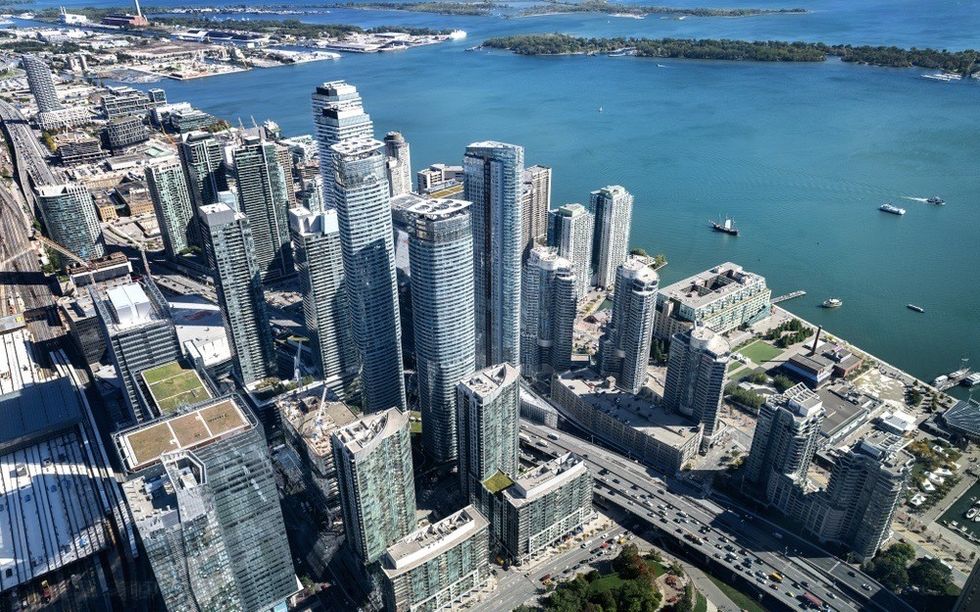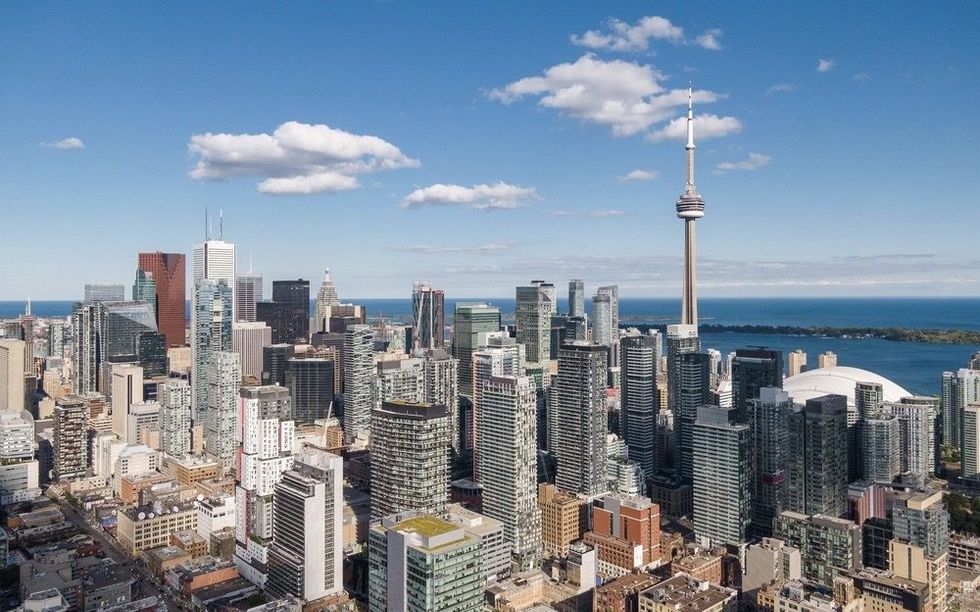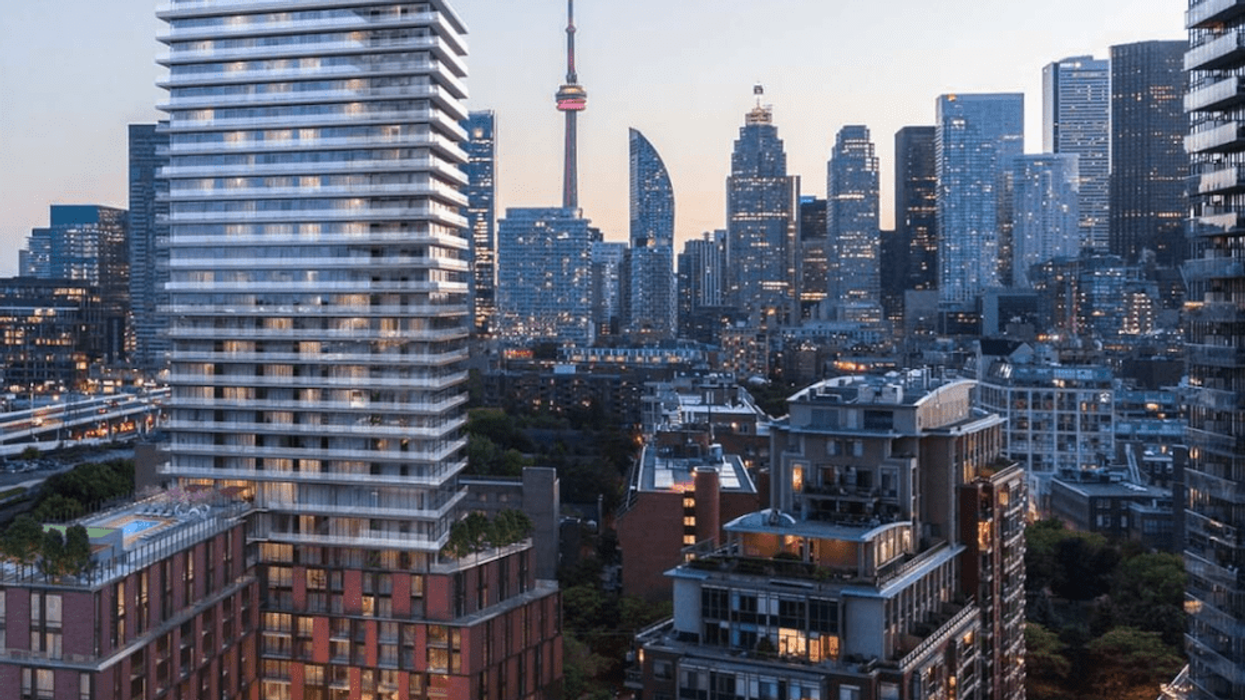The price gap between condos and detached houses has widened in Toronto.
The lack of new supply drove real estate prices higher than ever in November, with the average selling price for all home types -- including detached, semi-detached, townhouses, and condos -- rising to $1,163,323. Detached houses in the City of Toronto now sell for an average of $1,807,983 and condos sell for an average of $745,951.
According to the Toronto Regional Real Estate Board (TRREB), the price gap between detached homes and condo apartments in November 2021 was slightly wider than its peak in February 2017: $1,062,032 versus $1,058,198.
As the price of detached houses continues to soar to new, increasingly-unattainable heights, a growing number of would-be first-time homebuyers remain stuck in the rental market, or left to turn to the next best thing on the ownership front -- condos.
“We saw detached homes take a real majority of the excess demand during the latter half of 2022 and through 2021,” said Phil Soper, President of Royal LePage. “The gap between the price of a detached home and a condominium grew larger and larger to the point that we believe for someone, a family or a person who’s a first-time homebuyer, looking to get into the market there will be more interest that swings to condominiums.”
With the GTA’s housing market characterized by a relentless lack of supply -- especially for detached homes in Toronto's core -- and sky-high prices that far outpace incomes, it’s no doubt that more kids will be raised in condos in the coming years. Developers are aptly adapting, with large condo units in multi-faceted buildings -- or vertical communities -- that come with a slew of family-friendly amenities, from play rooms for kids and pods for teenagers, to an abundance of green space and pet runs.

“Buyers only have so much money to spend, so they will buy what they can afford. If detached houses have become unaffordable to them, they will purchase semi-detached houses, and if they can no longer afford a semi, they will buy a two-bedroom condo,” says Toronto-based realtor Davelle Morrison. “We saw this happen when the government changed the mortgage rules a few years ago. Buyers couldn’t qualify for as much money as they had in the past so it forced more buyers into the condo market. It’s a good thing there are so many condos being built.”
The price to purchase a place to call home in the GTA -- whether a condo, townhome, or detached house -- will only continue to rise. The consensus among experts is that we won’t see a dramatic bubble burst and subsequent drop in home prices (so don't hold your breath). This is especially true once the country begins to finally recover from the seemingly-never-ending pandemic.
"Unless something unforeseen happens, specifically closing the borders to new immigrants, new and resale house and condo prices will continue to climb,” says Mark Cohen, founding partner of The Condo Store. “Scarcity of land will ensure that detached homes remain expensive. As a result, expect more variations of stick built product, i.e. townhomes, urban townhomes(stacks), back-to-back townhomes, and new cluster homes.”

With affordability reigning supreme, condo prices will be able to increase as long as they remain an affordable alternative for consumers, says Cohen. “Developers marketing condos will sleep a little easier, as this hole in the market will allow them to price accordingly to compensate for ever rising costs both hard and soft,” he says.
Even in pandemic-ridden times, Canada remains an attractive option for new residents, says Soper. Inevitably, this will only add to the unwavering demand for housing in major cities like Toronto.
“We have some 840,000 typically studying in Canada and they are coming back; Canada stands out on the global stage as one of those places where you wouldn’t mind living during a global pandemic,” says Soper. “The vaccination rate is over 90% and there are sensible COVID protection protocols, but not so restrictive that you can’t go about living your life. Like many things Canadian, it’s a nice balance between economics and social welfare.”
In relative terms, condos really look like a bargain and therefore an attractive option to call home, says Soper.
"The place we see it happening most significantly is in the GTA; it’s also the place where we saw the biggest exodus of investor landlords in 2020, with a real exodus of individual owners during that time period," says Soper. "People were running scared; they were highly leveraged and some of these owners sold. People who snapped up properties were first-time homebuyers, so we saw a surge in first-time homebuying during the early part of the pandemic, but it appears that period has come to an end and investors are back in force. I’m not talking about people buying to flip condos; I’m talking about people investing in real estate to create income through being a landlord, and it’s much-needed rental space.”
With the price of condos predicted to climb -- rendering ownership increasingly out of the question for both houses and condo units -- the availability of these rental properties remain as important to Toronto's housing landscape as ever. With the average Toronto condo now costing upward of $700K, the reality is that they too are unaffordable to many young home-seekers. The good news? As the city continues to move in the direction of Manhattan on the affordability front, we will see the stigma surrounding renting continue to decrease in Toronto, predict experts.
(So, at least those who have given up on the prospect of homeownership in Toronto altogether won't feel as bad about it).





















